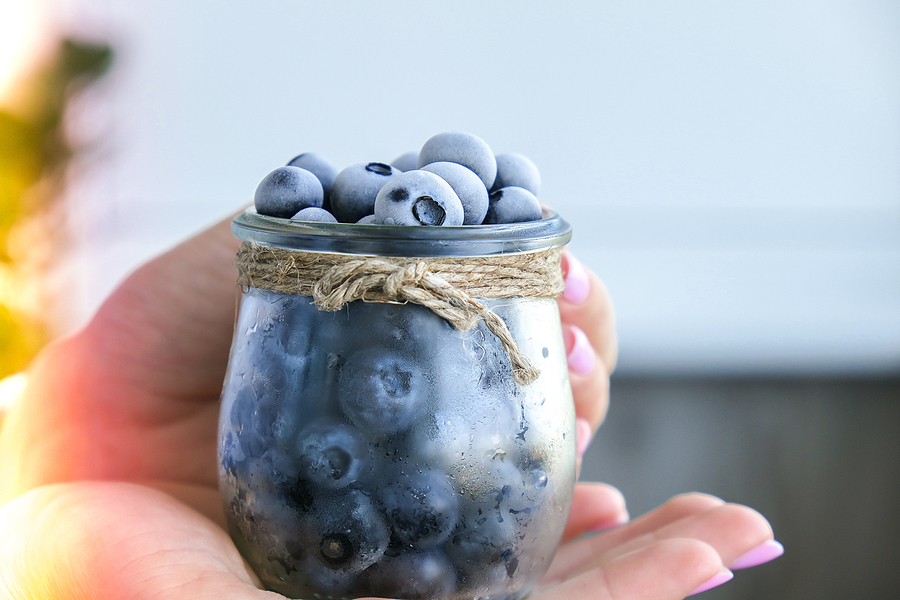Updated 11/15/2020
Respiratory bugs hit frequently in the fall and winter, and this year, it’s even more important to keep your immune system strong and healthy to avoid catching anything (especially now).
My friend, Sheila, was recently telling me how worried she was about catching even a simple cold this year, since having any respiratory symptoms at all would mean she’d have to stay home from work.
She was asking for some tips on how to stay healthy, and she was surprised when I told her that some of the most convenient and economical sources of immune support can be found right in your pantry, in the form of immune-boosting foods, herbs, and spices.
I have some favorites that act quickly on the respiratory tract as well as the immune system. These should be used either before you experience symptoms or when you first notice that tickle in your throat or nose.
To really boost your immune system and keep illness at bay, make these herbs, foods and spices a regular part of your healthy diet.
Foods and Herbs to Boost Your Immune System
Herbal remedies – Tea.
Many types of tea have long been revered for their health-enhancing effects, and much research has focused on the antioxidant impact they have.
But along with these antioxidant effects, drinkers of true tea (Camellia sinensis) — black, green, white, or oolong — are enjoying a range of phytochemicals that can help them avoid infection.
One tea ingredient, L-theanine, appears to prime the memory of core T cells in the immune system, teaching them to recognize certain molecular subcomponents of invading bacterial, parasitic, and viral microbes when encountered for the first time, so they can mount a significantly stronger response than “naïve” T cells.
Related article: Health Benefits of Tea
Another group of compounds in tea called catechins have been studied for their antimicrobial effects.
Green tea extracts rich in epigallocatechin gallate (EGCG), the major polyphenol in tea, have been shown to have antiviral effects against several influenza subtypes in the laboratory, and EGCG and its relatives are considered to be the likely source of this effect.
In another study conducted using mice, EGCG demonstrated strong effects against the H1N1 virus in particular. A 2012 study showed that guava tea had an even higher anti-influenza impact than green tea.
And a 2019 review study found that EGCG is helpful in combating certain bacterial biofilms that are present in chronic infections.
The exterior surfaces of influenza viruses are covered with protein-dense knobs responsible for binding to the cells being infected. Studies on EGCG suggest one way it inhibits the virus’s infectivity is by binding to these knobs so as to “preoccupy” them, actually altering the physical properties of the viral membrane.
Staying well-hydrated by drinking tea infusions also helps keep your sinuses, throat, and nasal passages from becoming clogged up.
Be aware that these teas can contain caffeine, and if that keeps you from getting the sleep you need it’s best to try a different approach.
Brewing herbal tisanes
When steeped in boiling water, just about any herb or plant material that is not tea leaves becomes what is known traditionally as a tisane.
If left to brew for some time, it becomes an infusion. Whether brewed as single ingredients or in combination, there are countless varieties of these herbal tisanes and infusions, with an equally diverse range of health-enhancing applications.
Chinese medicine has long recognized the healing benefits of herbs. Now, studies are elucidating the molecular mechanisms underlying these longstanding observations. That gives us a better, albeit still limited, understanding of how they enhance our overall well-being.
But you need not brew up a tisane to derive better immunity, as herbs can be compounded in a wide range of forms, including tinctures, extracts, homeopathic and combination preparations.
One of the best known and most widely used herbs, Echinacea, has been long considered a source of immune support in traditional medicine but regarded with mixed feelings by conventional practitioners.
Laboratory studies on different Echinacea species, plant parts, and preparations have demonstrated a variety of antiviral properties, useful in preventing and fending off respiratory viruses.
These studies also demonstrate, however, that Echinacea preparations can differ greatly, as can their effectiveness.
We recommend you look for organically grown or sustainably harvested herbs, and if using supplements, choose high-quality standardized extracts, whether Echinacea or other medicinal herbs.
Below are 5 of my favorite plant-based remedies for fighting infection and boosting immune function.
5 medicinal herbs for cold and flu season
For generations certain herbs have been identified as preventives for colds and flu, widely used in various forms and combinations, and regarded as invaluable for warding off infection and decreasing severity and duration of symptoms.
Modern science has placed these medicinal herbs under intense scrutiny, and the research on some has been mixed yet supportive.
We now have a growing body of evidence confirming overall lower incidence of flu and cold infection with the use of certain herbs, while other studies demonstrate intriguing immune-stimulating activity.
Related article: When You Support Your Adrenals, Your Immune System Wins Too!
Herbal medicines are thought to neutralize or limit the success of seasonal viruses in myriad ways, but principally by increasing immune cell numbers and function, gene expression, and cell-signaling activity in the body. Others appear to act upon the virus particles themselves.
Most botanical preparations containing these herbs work best when taken as preventives, or as soon as symptoms become evident. Here are 5 for which the science is strong:
1. Astragalus (A. membranaceous)
Research indicates that astragalus may increase production of white blood cells, the immune system cells responsible for preventing illness. Astragalus root has been shown to be effective in killing bacteria and infection in both animal and limited human research.
2. Black elderberry (Sambucus nigra)
Black elderberry is widely recognized to be supportive against the common cold and influenza.
A recent study showed that elderberry compounds had a direct antiviral effect against influenza. The compounds were applied to cells before, during and after infection, and demonstrated an inhibitory impact at each stage.
This suggests that, in addition to being a power preventive measure, elderberry can help minimize symptoms if you do contract the flu.
3. Cordyceps (C. militaris)
Research shows that cordyceps has a number of beneficial effects against infection, including modulating the immune system (including the gut immune system) and powerful antioxidant activity.
4. Echinacea (E. angustifolia, E. purpurea, E. pallida)
As noted above, Echinacea is one of the most widely accepted and utilized herbs for supporting the immune system. While research has been mixed, this can be at least in part attributed to the differing parts and quality of plants used in the studies.
A 2007 meta-analysis of 14 clinical trials studying Echinacea concluded that not only was Echinacea effective against the common cold, it could reduce the chances of catching a cold by more than half, and reduce the duration by an average 1.4 days.
5. Eleuthero (Siberian ginseng — Eleutherococcus senticosus)
Along with other recognized benefits for stress, anxiety, and cardiovascular health, Eleuthero has been shown to have strong potential as an antioxidant, as well as immune boosting properties.
Foods that help fight respiratory infection
Along with herbal remedies, some foods act as natural immune boosters and anti-inflammatories. When you include these in your diet on a regular basis, your immune and respiratory systems benefit. Here are a few that I love:
Garlic
Used for millennia to combat respiratory and other infections, including viral illnesses, garlic contains a number of compounds, such as ajoene and allicin, that show potent antibacterial and virucidal activity.
Scientific data on its proposed antiviral properties are still somewhat limited, but studies have shown that garlic promotes overall immune health, that it is active against specific bacterial infections of the respiratory tract, and that it may bolster the ability of the respiratory tract to defend against viral infection.
Hot peppers
Chili peppers such as jalapeño, poblano, or serrano contain moderate levels of the compound capsaicin, which is what makes peppers burn in your mouth — and clear out your sinuses!
Adding these peppers to soups and other dishes can help open up clogged airways and promote better drainage of the sinuses, which in turn helps rid them of infectious bacteria, viruses, and the mucus and cellular debris associated with them.
Peppers are also a high-quality source of vitamin C. As with some other natural treatments, the research on vitamin C and cold and flu prevention has been mixed and somewhat controversial.
That said, vitamin C (ascorbic acid) is a powerful antioxidant, and it does appear to benefit the immune response, reduce the duration of respiratory symptoms, and may have some direct effects against influenza.
Chicken soup
Mothers and grandmothers have prescribed homemade chicken soup as a remedy for colds and flu for generations — perhaps since ancient Greece — and with good reason!
It may not be a cure-all, but chicken soup does have a number of benefits for overall immune health and a healthy respiratory tract, and it certainly is comforting.
As part of the natural inflammatory response, respiratory viruses like the common cold and influenza cause immune cells called neutrophils to migrate to the mucosal lining of the airways — this is thought to be what causes the secretion of mucus.
Chicken soup has been shown to significantly limit the number of neutrophils that get drawn in. Steam from chicken soup helps open nasal passages, so it also helps remove infectious particles from your airways in that fashion.
And if you make a chicken soup with fresh, homemade broth, garlic, and a jalapeño pepper, you’ll have a triple whammy for your respiratory health!
Avoid seasonal infection — naturally!
A strong immune system will help keep you healthy, and these amazing herbs and foods can go a long way towards protecting your health. Eating well is the best medicine we have, especially during cold and flu season!
For ongoing or more serious immunological or inflammatory concerns, please consult with a qualified professional for the best overall outcome.







